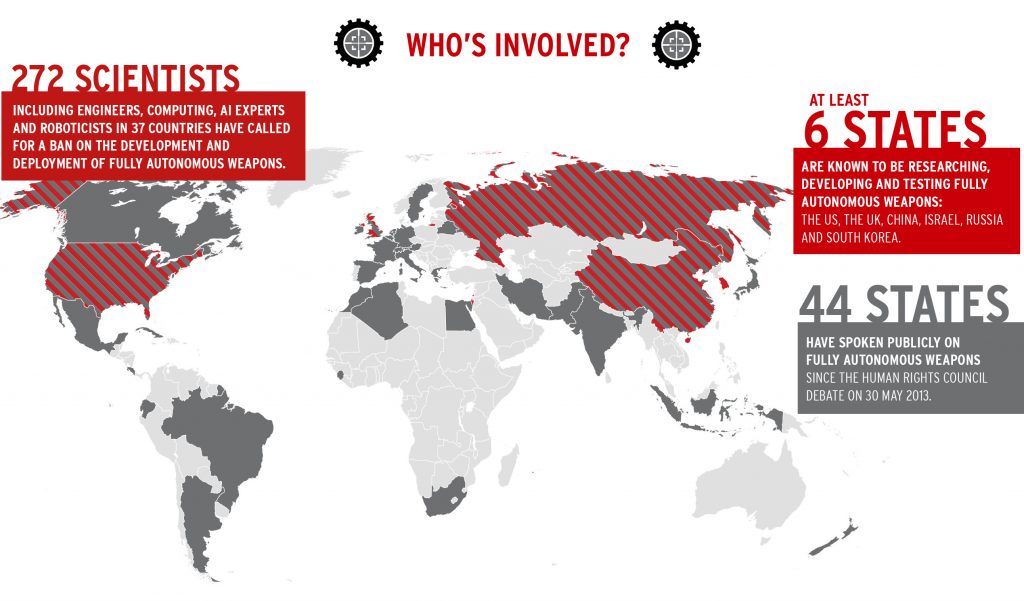Congress, Presidency, and Artificial Intelligence
Chapter twelve within the textbook highlights the relationship between presidents and congress. Although the president posses the vital powers for conducting foreign affairs and defending the nation against invasion and civil flares, most of the policymaking is held within the congress. On the other side, congress may declare war, but the president posses many important roles such as commander in chief, chief executive, military and foreign policy leader. This distinct power to make decisive decisions during times of war leads me to introduce the idea of using artificial intelligence within warfare.
Artificial intelligence (AI) is a hot topic in today’s society. Both military and recreational robots incorporate the use of AI that allow for them to in a sense, have a mind of their own. In a military setting, this gives rise to the debate as to whether robots that possess artificial intelligence should be given the power to carry out operations. To take a side upon this debate we must first better understand the unknown of AI. Robots can be programmed to think in two different ways, automated and autonomous. An automated system can be described as specific structure programming, meaning that for each input into the system the output will always be the same. The second method of programming is the autonomous system, which uses probability and statistics to self reason the best course of action. This results in various outputs that cannot always be predictable. It would only seem right to use automated programmed robots in situations that determine the life or death of a human, as the programmer would directly control the outputs. Currently there are no autonomous systems in operation, but as you can imagine engineers are designing robots that can make decisions on their own meant for military use. Personally this frightens me and I believe that it is something that needs to be made well known.
Thankfully, 37 states have banned the development and deployment of these autonomous systems. The people who develop such things understand how dangerous it can be due to the potential to get out of hand. Barrack Obama spent a significant amount of time during his presidency discussing artificial intelligence. In contrast Donald Trump has yet to talk about the topic. Although, “House of Armed Services Subcommittee on Emerging Threats and Capabilities recently introduced legislation calling for the creation of a national security commission on artificial intelligence”. This is good news because if the bill passes, Trump will be given a full report on AI within the next year. Hopefully then he will choose to make this information public, allowing for the people to prepare for the technological advancements of the future.
https://thenextweb.com/artificial-intelligence/2018/04/09/gop-proposes-bill-to-educate-trump-on-ai-next-year/
https://www.weforum.org/agenda/2016/01/robots-in-war-the-next-weapons-of-mass-destruction/
